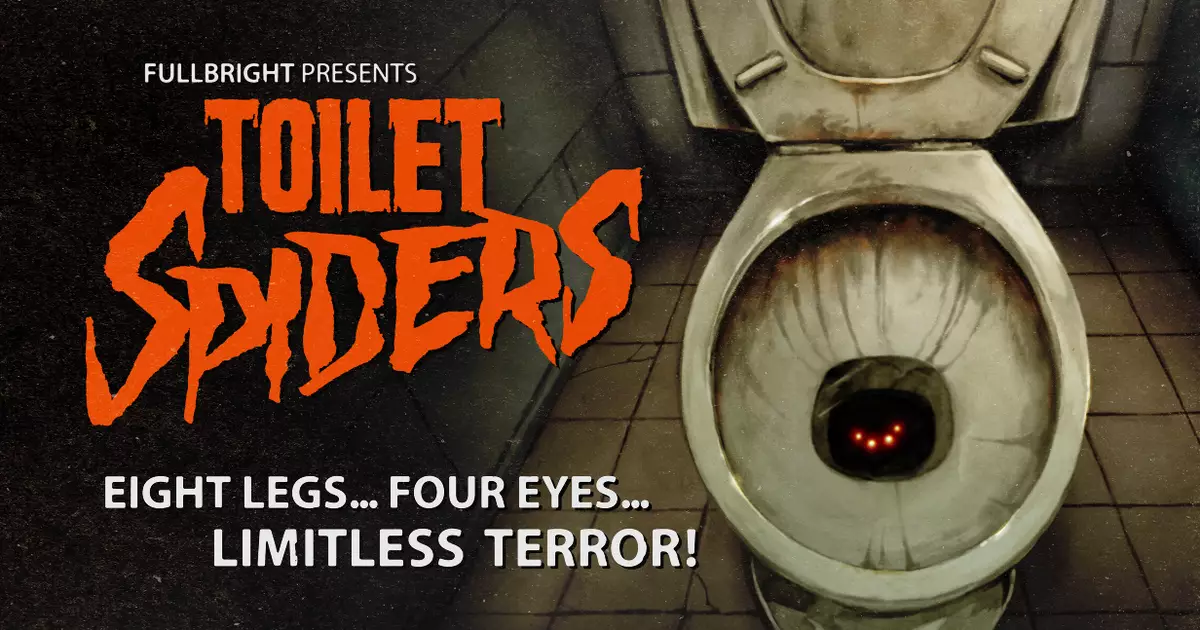In a landscape where video games serve as both an entertainment medium and a narrative art form, Fullbright has carved out a unique niche. Known widely for creating “Gone Home,” a haunting exploration of familial angst and adolescent memories, the studio has now turned its creative lens onto something decidedly different: the peculiar horror of “Toilet Spiders.” This game marks a new chapter for Fullbright as it explores a quirky blend of horror, survival mechanics, and narrative intrigue, promising a refreshingly offbeat experience for players who dare to take the plunge.
“Toilet Spiders” transports players into an unsettling Exclusion Zone, inhabited by giant radioactive spiders that are as comical as they are terrifying. The premise could be dismissed as absurd if not for the underlying tension it conjures. Drawing players into a world where terrifying creatures lurk in mundane settings like toilets transforms a familiar yet private act into a suspenseful nightmare. The game’s ability to juxtapose the ordinary with the unsettling is reminiscent of the atmospheric cues that initially defined Fullbright’s work. While it is pivotal to manage resources and make strategic decisions to avoid these arachnid monsters, the game also invites players to reflect on not just the mechanics of survival but the deeper emotional undertones that might exist.
While much of Fullbright’s previous work revolves around psychological themes—often with hints of horror—the evolution into “literal atomic arachnids” captures a shift in both tone and thematic exploration. Nonetheless, this transformation raises an interesting question: Are these spiders merely a representation of fear or are they channeling something deeper, perhaps even personal?
The mechanics of “Toilet Spiders” compel players to engage in thoughtful resource management while navigating this strange world. Players are tasked with scavenging items that aid in avoiding or perhaps confronting the spiders, each choice presenting both risk and reward. The lo-fi aesthetic and limited inventory system echo the constraints of survival horror while amplifying the game’s absurdity. This quirky survival game reflects a blend of strategy, chance, and psychological gameplay that fans of the genre can find captivating.
In its essence, “Toilet Spiders” might seem like a simple horror narrative steeped in tongue-in-cheek humor, yet it eludes a reductive interpretation. The interactions within the game mirror the unpredictability of real life, urging players to carefully assess their situations against the ever-present threat that looms—much like confronting the burdens of one’s past. This narrative layering speaks volumes about what Fullbright aims to achieve with its new anthology series.
However, “Toilet Spiders” isn’t just about whimsical spider evasion; it stands as a testament to the evolution of Fullbright as a studio. In light of past controversies involving co-founder Steve Gaynor, the game opens a conversation about the creative process in a changing corporate culture. It is difficult to separate the game’s bizarre premise from Gaynor’s tumultuous journey within the industry, especially as he navigated accusations of fostering a toxic work environment. Yet, rather than viewing this context as a handicap, it might be seen as an opportunity for catharsis, for both creator and audience.
As Fullbright ventures into this offbeat genre, one can’t help but ponder if the existential dread painted through its vibrant gameplay serves as commentary on Gaynor’s own internal struggles. “Toilet Spiders” invites players into a uniquely chaotic world, merging horror with humor while hinting at the complexities that often lie beneath the surface of creativity. The absurdity of the game allows for varied interpretations, making “Toilet Spiders” a rich analysis of fear, legacy, and the human condition.
Playing “Toilet Spiders” could feel like stepping into an alternate universe of gaming. It expertly balances satire with genuine horror, compelling players to navigate not only the external threats of the game but also the narrative’s deeper implications for both its creator and its audience. In doing so, Fullbright continues to challenge traditional perceptions of storytelling in video games, crafting a piece that is as thought-provoking as it is entertaining.
Thus, whether players engage with the game purely for its humor or seek deeper meaning, they will surely find themselves entangled in the web of experiences that “Toilet Spiders” weaves. As we journey forward in gaming, it is this kind of creative courage that pushes the medium to new, uncharted territories.

